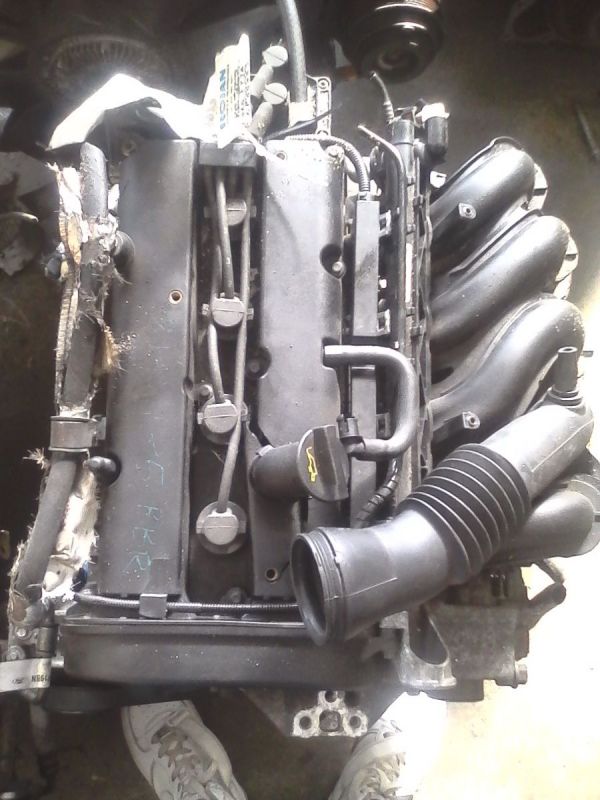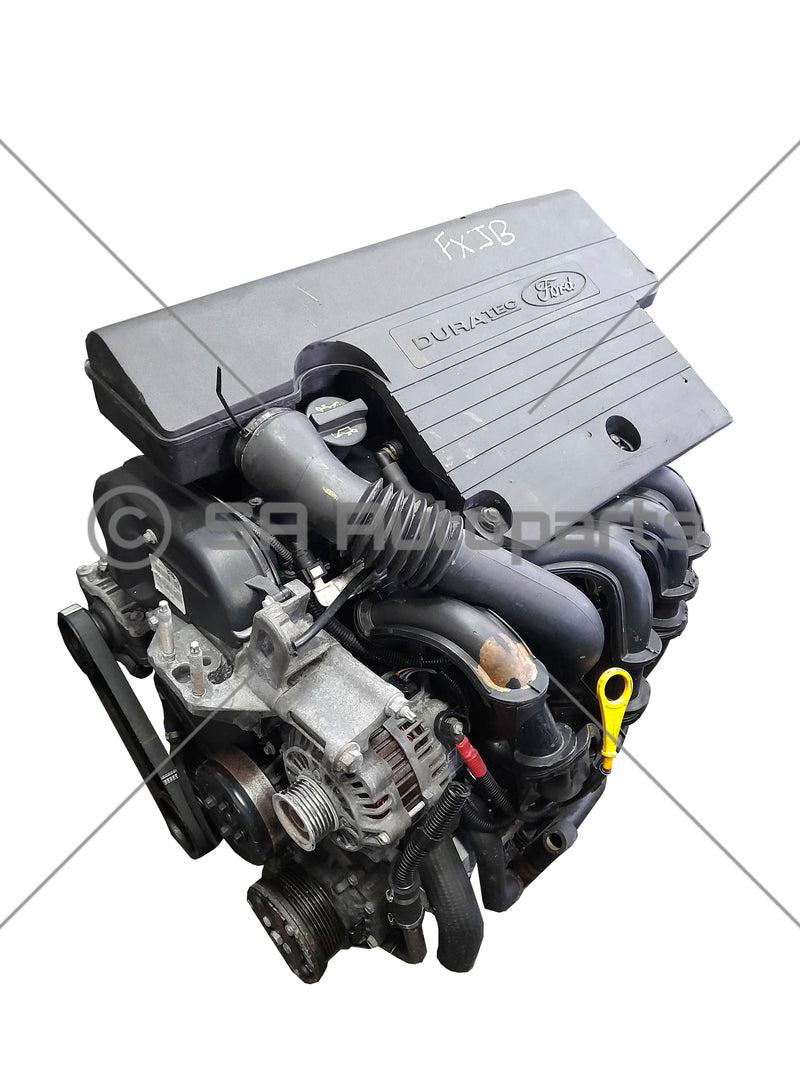Why Choosing the Right Ford Fiesta Engine Parts Matters for Longevity
Why Choosing the Right Ford Fiesta Engine Parts Matters for Longevity
Blog Article
The Future of Engines: Technologies Driving Lasting Power Solutions
As the vehicle market browses the necessary transition towards sustainability, the future of engines is significantly specified by groundbreaking innovations. Electric engine improvements, alongside encouraging developments in hydrogen fuel cells and biofuels, are reshaping the landscape of power solutions. The emergence of crossbreed systems additionally complicates this development, presenting both difficulties and opportunities to reduce exhausts properly. Paired with the combination of artificial intelligence in engine layout, these technical strides raise essential inquiries concerning their lasting practicality and effect on traditional standards. What might this mean for the industry and customers alike?
Electric Engine Developments
The advancement of electrical engine growths represents a crucial shift in the automotive and aerospace sectors, driven by the urgent demand for lasting alternatives to fossil gas. This change is characterized by significant innovations in battery modern technology, power electronics, and electric motor layout, which collectively boost the performance and efficiency of electric engines.
Recent technologies have actually brought about the development of lighter, a lot more energy-dense batteries, such as lithium-silicon and solid-state batteries, which guarantee longer varieties and much shorter billing times. Additionally, enhancements in electric motor efficiency, such as using long-term magnets and advanced cooling down systems, allow electrical engines to operate effectively under differing problems. These enhancements not only boost car performance yet likewise add to a reduction in overall power consumption.
In addition, the combination of sophisticated software application algorithms has actually enhanced energy monitoring in electric automobiles, enabling regenerative stopping and anticipating billing strategies. As suppliers significantly accept electrical propulsion, the automotive and aerospace sectors are experiencing a standard change in the direction of greener modern technologies. This evolution not just fulfills regulatory needs but also straightens with consumer choices for eco-friendly transport services, solidifying electric engines as a keystone of future sustainable wheelchair.
Innovations in Biofuels
As the aerospace and automobile markets increasingly focus on sustainable power resources, innovations in biofuels become a corresponding solution to electric engines. Biofuels, originated from natural products such as plants, waste, and algae, present an innovative opportunity for decreasing greenhouse gas emissions and dependence on fossil gas.
Recent study has actually focused on improving the efficiency and sustainability of biofuel production. Second-generation biofuels use non-food feedstocks, decreasing competitors with food supply and reducing environmental effect. Advancements in synthetic biology have actually enabled the design of bacteria to produce biofuels much more successfully, leading to greater yields and reduced manufacturing expenses.
Furthermore, the advancement of drop-in biofuels permits seamless combination right into existing facilities, enabling a smoother shift for sectors commonly dependent on nonrenewable fuel sources. ford fiesta engine. These fuels can be used in present engines without adjustments, promoting their adoption across different sectors
Investments in biofuel technology, together with supportive policies, are important to drive innovation and scalability. As the global community seeks to deal with environment change, biofuels use a pragmatic, immediate option that straightens with the overarching goal of sustainability in transport and air travel.
Hydrogen Fuel Cell Technology
An expanding number of researchers and business are checking out hydrogen fuel cell innovation as a feasible alternative to conventional power resources in transport and energy systems. This technology converts chemical energy from hydrogen right into power via an electrochemical reaction, with water as the only result, making it an eco-friendly choice.
The core of hydrogen fuel cells is the gas cell pile, where hydrogen particles are divided right into protons and electrons. The flow of electrons generates power, while protons relocate with a membrane to integrate learn the facts here now with oxygen from the air, creating water. This procedure leads to high effectiveness and low emissions, placing hydrogen fuel cells as a critical gamer in the shift to lasting power.
Considerable innovations have actually been made in boosting the resilience and performance of fuel cells, together with minimizing prices with cutting-edge manufacturing techniques. Additionally, the growth of hydrogen manufacturing approaches, such as electrolysis powered by eco-friendly energy resources, improves the sustainability of the total system. As facilities for hydrogen refueling expands and manufacturing methods come to be more efficient, hydrogen fuel cell innovation holds terrific assurance for decarbonizing different industries, including durable transport and stationary power generation.
Hybrid Solutions and Their Effect
Crossbreed systems stand for a considerable evolution in lasting engine technology, combining traditional anchor interior combustion engines with electric propulsion to optimize energy performance and minimize discharges (ford fiesta engine). This twin technique enables lorries to use both source of power, making it possible for higher versatility in power intake and reducing dependence on fossil gas

In addition to environmental advantages, crossbreed systems offer customers a feasible shift towards completely electric vehicles. They ease array stress and anxiety by combining the benefit of fuel with the advantages of electrical propulsion, making them an eye-catching option for a broader audience.
The Role of AI in Engine Style
Leveraging sophisticated formulas and artificial intelligence strategies, the automotive market look at here is progressively incorporating expert system (AI) right into engine layout processes. AI boosts the efficiency and performance of layout by analyzing substantial datasets to determine ideal arrangements and performance specifications. This ability enables designers to simulate different operating problems and predict engine habits under multiple circumstances, dramatically reducing the moment and cost related to standard prototyping approaches.
Additionally, AI promotes the development of innovative materials and combustion procedures customized for sustainability. By enhancing gas performance and reducing discharges, AI-driven designs align with global efforts intended at reducing the carbon footprint of vehicle engines. Artificial intelligence formulas can additionally predict upkeep requirements, resulting in boosted reliability and long life of engine parts.
In Addition, AI is important in the combination of electrification modern technologies, such as crossbreed systems, where it can maximize battery management and energy recovery processes. As the market relocates in the direction of even more lasting power remedies, the duty of AI in engine layout comes to be progressively crucial, driving technology and enhancing the efficiency of future engines. Inevitably, the collaboration in between AI and engine layout declares a brand-new era of smarter, cleaner, and more effective automobile modern technologies.

Verdict
In verdict, the future of engines is being shaped by a convergence of ingenious technologies that focus on sustainability. Electric engine improvements, biofuel growths, hydrogen fuel cells, and hybrid systems collectively contribute to a significant decrease in discharges and ecological influence.
Electric engine improvements, along with encouraging advancements in hydrogen fuel cells and biofuels, are reshaping the landscape of power remedies. Furthermore, enhancements in electrical motor efficiency, such as the use of long-term magnets and advanced cooling systems, make it possible for electrical engines to run successfully under varying conditions. By optimizing fuel performance and decreasing discharges, AI-driven designs align with international campaigns intended at lowering the carbon impact of vehicle engines. As the market relocates in the direction of even more lasting power options, the duty of AI in engine style ends up being increasingly crucial, driving technology and boosting the performance of future engines. Electric engine developments, biofuel growths, hydrogen fuel cells, and hybrid systems collectively contribute to a significant reduction in discharges and ecological influence.
Report this page